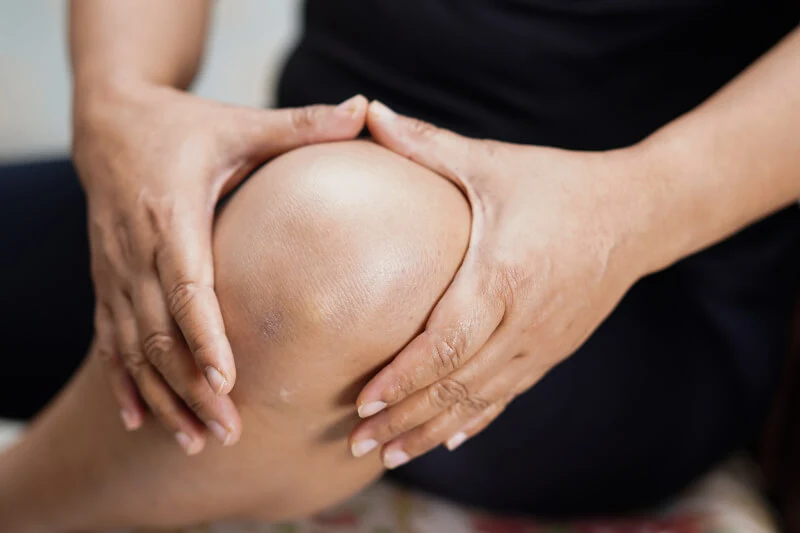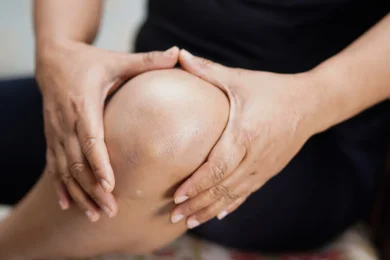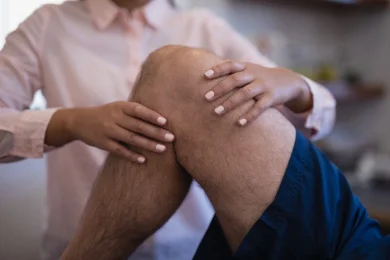Understanding Acute & Chronic Knee Pain
Knee pain can strike suddenly from a sports injury, fall, or accident, or it can develop gradually over months and years due to repetitive stress, aging, or degenerative conditions. Acute knee pain typically occurs after a specific incident and may improve within days or weeks with proper treatment. Chronic knee pain, however, persists for months or longer and can severely impact your ability to work, exercise, and maintain independence. For many of our patients at Pain Management of North Dallas, knee pain affects their sleep, prevents them from playing with grandchildren, or forces them to avoid stairs and long walks, leading to frustration and decreased overall wellness.
Knee pain symptoms aren’t always obvious in their origin. A minor ache after exercise might indicate early arthritis, while sudden swelling and instability could signal ligament damage or meniscus tears. Sharp pain with movement, stiffness in the morning, or pain that worsens with weather changes all provide important clues about the underlying condition. Determining whether your knee pain stems from cartilage wear, ligament injury, or inflammatory conditions is crucial for developing an effective treatment strategy. Early evaluation by our North Dallas knee pain specialists can lead to faster recovery and prevent long-term complications.
What Causes Knee Pain?
Knee pain can result from various factors, ranging from sudden traumatic injuries to gradual degenerative changes. Athletes may experience acute knee injuries from pivoting sports like basketball or soccer, while office workers might develop knee problems from prolonged sitting and muscle imbalances. Age-related changes, previous injuries, and genetic factors can also contribute to ongoing knee discomfort that interferes with daily activities.
The most common causes of knee pain include:
- Osteoarthritis causing cartilage breakdown and joint inflammation
- Meniscus tears from twisting motions or degenerative changes
- Ligament injuries including ACL, MCL, and PCL strains or tears
- Patellofemoral pain syndrome (runner’s knee) from overuse
- Bursitis causing inflammation around the knee joint
- IT band syndrome affecting the outer knee area
Some patients experience intermittent knee pain that flares with certain activities, while others deal with constant discomfort that affects every step. Because knee anatomy is complex, painful symptoms can originate from multiple structures. Typical knee pain symptoms include:
- Swelling
- Stiffness
- Redness
- Heat in the joint
- Weakness
- Instability
- Popping or crunching noises
Our specialists at Pain Management of North Dallas use advanced diagnostic techniques to identify the exact source of your knee pain and develop targeted treatment approaches. Without a proper evaluation, knee problems often worsen and can lead to compensatory issues in your hips, ankles, and back.
How We Treat Knee Pain and Discomfort in North Dallas
Every patient’s knee pain is unique, which is why we develop individualized treatment plans that may combine conservative therapies with cutting-edge interventional procedures. Our comprehensive approach focuses on reducing inflammation, restoring function, and helping you return to activities that matter most, whether that’s hiking local trails, playing tennis, or simply walking through the grocery store pain-free.
Your personalized knee pain treatment may include physical therapy to strengthen supporting muscles, targeted injections to reduce inflammation, medication management, and minimally invasive procedures designed to promote healing and restore mobility. We often recommend activity modifications, proper footwear, and exercises to improve knee stability and prevent future injuries. For more complex cases involving severe arthritis or structural damage, advanced interventional pain management techniques may be necessary to provide lasting relief.
Typical knee pain treatments at Pain Management of North Dallas include:
- Rest and activity modification
- Anti-inflammatory medications
- Physical therapy
- A brace or splint
- Steroid injections
- Genicular nerve blocks
- Hyaluronic acid injections
- Genicular radiofrequency ablation
- Peripheral nerve stimulation
Our dedicated team closely monitors your progress and adjusts treatments as needed to optimize your outcomes. By addressing both the pain and its underlying cause, we help patients throughout Frisco, Plano, McKinney, and Dallas regain their mobility and confidence from debilitating knee pain.
Ready to take the first step toward pain-free movement? Request an appointment with one of our board-certified knee pain specialists today at Pain Management of North Dallas.
Frequently Asked Questions About Knee Pain
What are the most common knee pain symptoms?
Knee pain symptoms often include stiffness, swelling, instability, and difficulty bearing weight. Many patients experience pain with bending, clicking or popping sounds, and limited range of motion. Some also notice weakness or a feeling that the knee might “give out.” Early recognition of these symptoms can lead to more effective treatment.
When should I see a doctor for knee pain?
You should schedule an evaluation if your knee pain persists longer than a few days, is accompanied by significant swelling or instability, or prevents you from normal activities like walking or climbing stairs. Immediate care is needed if you experience severe pain, obvious deformity, or inability to bear weight on the affected leg.
What treatments work best for knee pain?
Effective knee pain treatment depends on the underlying cause and severity of your condition. At Pain Management of North Dallas, we typically start with conservative approaches and advance to specialized interventional procedures when needed. Most patients achieve excellent results with our comprehensive treatment protocols tailored to their specific knee condition.
Can knee pain be prevented?
While some knee injuries are unavoidable, many cases of knee pain can be prevented through regular exercise to strengthen leg muscles, maintaining a healthy weight, wearing appropriate footwear, and using proper techniques during sports and physical activities. Addressing muscle imbalances and joint stiffness early can also reduce your risk of developing chronic knee problems.

















